Informationen zur Zeitschrift
Startseite » Programm » IJAR 3-2022 | Free Contributions
IJAR 3-2022 | Free Contributions
Erscheinungsdatum : 24.01.2023
29,00 € inkl. MwSt.
Inhalt
IJAR – International Journal of Action Research
3-2022: Free Contributions
Miren Larrea: Editorial: Action Research on the Edge
Research Articles
Sebastian Huber / Santidhorn Pooripakdee: The shift from owning to sharing: employing action research to facilitate SMEs’ business model transformation
Joaquín Gregorio Oliva Peirano: The Role of Action Research in Democratizing Governance: The Case of Bilbao Next Lab
Ariane Janse van Rensburg: Retrospective Action Research on Facilitating Equitable Learning Outcomes in a Diverse Class
Reynaldo O. Cuizon: Healing assessment trauma: an experience of mutuality in Action Research
Interview
Malida Mooken / Danilo Streck / Miren Larrea: A slow and steady journey with Action Research
Book Review
James Karlsen: Students’ Quality Circles: QC Circles Re-engineered for Developing Student Personality. Dinesh P. Chapagain (2022)
IJAR wants to upgrade its review section
Download of Table of Contents / Inhaltsverzeichnis herunterladen
Extracts / Leseproben
Download of single articles (Open Access/fee-based): ijar.budrich-journals.com
You can register here for the IJAR alert.
Einzelbeitrag-Download (Open Access/Gebühr): ijar.budrich-journals.com
Sie können sich hier für den IJAR-Alert anmelden.
Zusätzliche Information
| Verlag | |
|---|---|
| ISSN | 1861-1303 |
| eISSN | 1861-9916 |
| Jahrgang | 18. Jahrgang 2022 |
| Ausgabe | 3 |
| Erscheinungsdatum | 24.01.2023 |
| Umfang | 100 |
| Sprache | Englisch |
| Format | 17 x 24 cm |
| DOI | |
| Homepage |
Autor*innen
Schlagwörteraction research, business model transformation, business-to-business (B2B), democratization, diversity, equitable learning outcomes, experience of mutuality, governance, healing from assessment trauma, retrospective study, sharing economy, small and medium-sized enterprises (SMEs), sustainable development, territorial development, test material enhancement, urban policies
Abstracts
The shift from owning to sharing: employing action research to facilitate SMEs’ business model transformation (Sebastian Huber and Santidhorn Pooripakdee)
The sharing economy has witnessed tremendous growth inamultitude of industries around the world over the past decade. Access to, and a more sustainable use of, resources, cost saving potential, and a multitude of strategic benefits have been identified as attractive opportunities for small and medium-sized enterprises (SMEs) to engage in business-tobusiness (B2B) sharing with some frustration by governments, researchers and practitioners that so little actual B2B sharing can be observed in industry practice. It remains a strategic challenge for SMEs to manage the shift from resource ownership to sharing since that transition requires a permanent change in their business model. In light of the transformational nature of this qualitative research gap, an Action Research methodology has been developed and implemented in partnership with a selected sample of Swiss SMEs favourably inclined towards B2B sharing activities. While discussing how Action Research might bridge the research gap and develop tangible, empirically grounded management recommendations, this paper also contributes specific Action Research methodology for other cases of transformational nature which present an ever more frequent and common scenario in business management research. Keywords: action Research, sharing economy, business-to-business (B2B), small and medium-sized enterprises (SMEs), business model transformation, sustainable development
» Buy Single Contribution (Budrich Journals) / Einzelbeitrag kaufen (Budrich Journals)
The Role of Action Research in Democratizing Governance: The Case of Bilbao Next Lab (Joaquín Gregorio Oliva Peirano)
The aim of this study is to analyze how Action Research for Territorial Development (ARTD) promotes democratization in governance spaces. Considering the declared democratic intention of action research (AR) (Gustavsen, 2017; Palshaugen, 2014), ARTD is not an exception (Larrea, 2019). However, this specific relation with democratization has not been yet analyzed, nor measured in ARTD. In a context in which the number of countries categorized as free is at its lowest level in the 21st century (The Freedom House, 2021), the main contribution of this paper is the construction of a new analytical framework in order to assess the degree of democratization in ARTD processes. This analytical framework can be useful for other approaches to AR as well. More specifically, the most important contribution is the analysis of how ARTD may be facilitating such processes. This investigation studies governance at the Bilbao Next Lab, an AR laboratory focused on urban policy making in the Basque Country, Spain. This process is being facilitated through ARTD by the Basque Institute of Competitiveness – Orkestra in alliance with the local government, the Bilbao City Council and its economic development agency, Bilbao Ekintza. The case shows, together with new democratization dimensions analyzed, a deep and diverse bonding system between ARTD and democratization, in which the democratization factors hold to all ARTD elements. The paper discusses how the core ARTD elements are promoting the development of what are considered in theory as democratization factors. Key words: Action research, territorial development, democratization, governance, urban policies
» Buy Single Contribution (Budrich Journals) / Einzelbeitrag kaufen (Budrich Journals)
Retrospective Action Research on Facilitating Equitable Learning Outcomes in a Diverse Class (Ariane Janse van Rensburg)
In a South African class with complex diversity, certain student groupings were not performing equitably in relation to their potential. An Educational Action Research (AR) process of designing multiple, integrated practice changes over three years successfully redressed disparities, but the full impact of interventions could only be analysed in retrospect. Combining empirical observations with subsequent data collection to produce a theorised model, a transferable methodology using quantitative triangulation was designed to overcome the challenges of a rigorous retrospective AR study. This article discusses the integrated teaching interventions and the application of retrospective AR methodology. Keywords: action research, retrospective study, equitable learning outcomes, diversity
» Buy Single Contribution (Budrich Journals) / Einzelbeitrag kaufen (Budrich Journals)
Healing assessment trauma: an experience of mutuality in Action Research (Reynaldo O. Cuizon)
Learning assessment is a pedagogical reality such as in teaching professional education courses with preservice education students. Assessment problems like horrifying and boring test papers must be addressed because these cause trauma to learners. Using an Action Research Method, I subjected my test materials to democratic critiquing and enhancement process, taking-into account the experiences of my learners and the viewpoints of my colleagues as my study participants. Said materials were utilized as my pedagogical action to address student assessment animosity. The results made me discern that though the contents of my test papers were aligned with the learning outcomes defined by the Commission on Higher Education, they were merely words and sentences in monotone appearance and thus, not eye-catching. Consequently, I crafted a Holistic Written Assessment Guide (HWAG) ensuring in test paper construction the pedagogical values of multiple intelligences, learning taxonomies, grammar review necessity, proper coverage and level of difficulty sequencing and marking, and time-number of items balance. Utilizing this new form and substance of my learning assessment material and engaging with it turned out to be liberating thus mutual healing to me as a transformed purveyor of education, to my students as healthy collaborators, creators and ultimate beneficiaries of learning, and to educators in the global environment as inspirers of democratic, equitable, and lifelong education. With this mutuality, this paper potentially enables leaders of nations to engage in the transformation of the pedagogical landscape. Keywords: Healing from assessment trauma, test material enhancement, experience of mutuality, action research
» Buy Single Contribution (Budrich Journals) / Einzelbeitrag kaufen (Budrich Journals)
Inhalt
Inhalt
IJAR – International Journal of Action Research
3-2022: Free Contributions
Miren Larrea: Editorial: Action Research on the Edge
Research Articles
Sebastian Huber / Santidhorn Pooripakdee: The shift from owning to sharing: employing action research to facilitate SMEs’ business model transformation
Joaquín Gregorio Oliva Peirano: The Role of Action Research in Democratizing Governance: The Case of Bilbao Next Lab
Ariane Janse van Rensburg: Retrospective Action Research on Facilitating Equitable Learning Outcomes in a Diverse Class
Reynaldo O. Cuizon: Healing assessment trauma: an experience of mutuality in Action Research
Interview
Malida Mooken / Danilo Streck / Miren Larrea: A slow and steady journey with Action Research
Book Review
James Karlsen: Students’ Quality Circles: QC Circles Re-engineered for Developing Student Personality. Dinesh P. Chapagain (2022)
IJAR wants to upgrade its review section
Download of Table of Contents / Inhaltsverzeichnis herunterladen
Extracts / Leseproben
Download of single articles (Open Access/fee-based): ijar.budrich-journals.com
You can register here for the IJAR alert.
Einzelbeitrag-Download (Open Access/Gebühr): ijar.budrich-journals.com
Sie können sich hier für den IJAR-Alert anmelden.
Bibliografie
Zusätzliche Information
| Verlag | |
|---|---|
| ISSN | 1861-1303 |
| eISSN | 1861-9916 |
| Jahrgang | 18. Jahrgang 2022 |
| Ausgabe | 3 |
| Erscheinungsdatum | 24.01.2023 |
| Umfang | 100 |
| Sprache | Englisch |
| Format | 17 x 24 cm |
| DOI | |
| Homepage |
Produktsicherheit
Bewertungen (0)
Bewertungen
Es gibt noch keine Bewertungen.
Autor*innen
Autor*innen
Schlagwörter
Schlagwörteraction research, business model transformation, business-to-business (B2B), democratization, diversity, equitable learning outcomes, experience of mutuality, governance, healing from assessment trauma, retrospective study, sharing economy, small and medium-sized enterprises (SMEs), sustainable development, territorial development, test material enhancement, urban policies
Abstracts
Abstracts
The shift from owning to sharing: employing action research to facilitate SMEs’ business model transformation (Sebastian Huber and Santidhorn Pooripakdee)
The sharing economy has witnessed tremendous growth inamultitude of industries around the world over the past decade. Access to, and a more sustainable use of, resources, cost saving potential, and a multitude of strategic benefits have been identified as attractive opportunities for small and medium-sized enterprises (SMEs) to engage in business-tobusiness (B2B) sharing with some frustration by governments, researchers and practitioners that so little actual B2B sharing can be observed in industry practice. It remains a strategic challenge for SMEs to manage the shift from resource ownership to sharing since that transition requires a permanent change in their business model. In light of the transformational nature of this qualitative research gap, an Action Research methodology has been developed and implemented in partnership with a selected sample of Swiss SMEs favourably inclined towards B2B sharing activities. While discussing how Action Research might bridge the research gap and develop tangible, empirically grounded management recommendations, this paper also contributes specific Action Research methodology for other cases of transformational nature which present an ever more frequent and common scenario in business management research. Keywords: action Research, sharing economy, business-to-business (B2B), small and medium-sized enterprises (SMEs), business model transformation, sustainable development
» Buy Single Contribution (Budrich Journals) / Einzelbeitrag kaufen (Budrich Journals)
The Role of Action Research in Democratizing Governance: The Case of Bilbao Next Lab (Joaquín Gregorio Oliva Peirano)
The aim of this study is to analyze how Action Research for Territorial Development (ARTD) promotes democratization in governance spaces. Considering the declared democratic intention of action research (AR) (Gustavsen, 2017; Palshaugen, 2014), ARTD is not an exception (Larrea, 2019). However, this specific relation with democratization has not been yet analyzed, nor measured in ARTD. In a context in which the number of countries categorized as free is at its lowest level in the 21st century (The Freedom House, 2021), the main contribution of this paper is the construction of a new analytical framework in order to assess the degree of democratization in ARTD processes. This analytical framework can be useful for other approaches to AR as well. More specifically, the most important contribution is the analysis of how ARTD may be facilitating such processes. This investigation studies governance at the Bilbao Next Lab, an AR laboratory focused on urban policy making in the Basque Country, Spain. This process is being facilitated through ARTD by the Basque Institute of Competitiveness – Orkestra in alliance with the local government, the Bilbao City Council and its economic development agency, Bilbao Ekintza. The case shows, together with new democratization dimensions analyzed, a deep and diverse bonding system between ARTD and democratization, in which the democratization factors hold to all ARTD elements. The paper discusses how the core ARTD elements are promoting the development of what are considered in theory as democratization factors. Key words: Action research, territorial development, democratization, governance, urban policies
» Buy Single Contribution (Budrich Journals) / Einzelbeitrag kaufen (Budrich Journals)
Retrospective Action Research on Facilitating Equitable Learning Outcomes in a Diverse Class (Ariane Janse van Rensburg)
In a South African class with complex diversity, certain student groupings were not performing equitably in relation to their potential. An Educational Action Research (AR) process of designing multiple, integrated practice changes over three years successfully redressed disparities, but the full impact of interventions could only be analysed in retrospect. Combining empirical observations with subsequent data collection to produce a theorised model, a transferable methodology using quantitative triangulation was designed to overcome the challenges of a rigorous retrospective AR study. This article discusses the integrated teaching interventions and the application of retrospective AR methodology. Keywords: action research, retrospective study, equitable learning outcomes, diversity
» Buy Single Contribution (Budrich Journals) / Einzelbeitrag kaufen (Budrich Journals)
Healing assessment trauma: an experience of mutuality in Action Research (Reynaldo O. Cuizon)
Learning assessment is a pedagogical reality such as in teaching professional education courses with preservice education students. Assessment problems like horrifying and boring test papers must be addressed because these cause trauma to learners. Using an Action Research Method, I subjected my test materials to democratic critiquing and enhancement process, taking-into account the experiences of my learners and the viewpoints of my colleagues as my study participants. Said materials were utilized as my pedagogical action to address student assessment animosity. The results made me discern that though the contents of my test papers were aligned with the learning outcomes defined by the Commission on Higher Education, they were merely words and sentences in monotone appearance and thus, not eye-catching. Consequently, I crafted a Holistic Written Assessment Guide (HWAG) ensuring in test paper construction the pedagogical values of multiple intelligences, learning taxonomies, grammar review necessity, proper coverage and level of difficulty sequencing and marking, and time-number of items balance. Utilizing this new form and substance of my learning assessment material and engaging with it turned out to be liberating thus mutual healing to me as a transformed purveyor of education, to my students as healthy collaborators, creators and ultimate beneficiaries of learning, and to educators in the global environment as inspirers of democratic, equitable, and lifelong education. With this mutuality, this paper potentially enables leaders of nations to engage in the transformation of the pedagogical landscape. Keywords: Healing from assessment trauma, test material enhancement, experience of mutuality, action research
» Buy Single Contribution (Budrich Journals) / Einzelbeitrag kaufen (Budrich Journals)
Das könnte Sie auch interessieren:
Verlag Barbara Budrich
- +49 (0)2171.79491-50
- info@budrich.de
-
Stauffenbergstr. 7
51379 Leverkusen
Deutschland


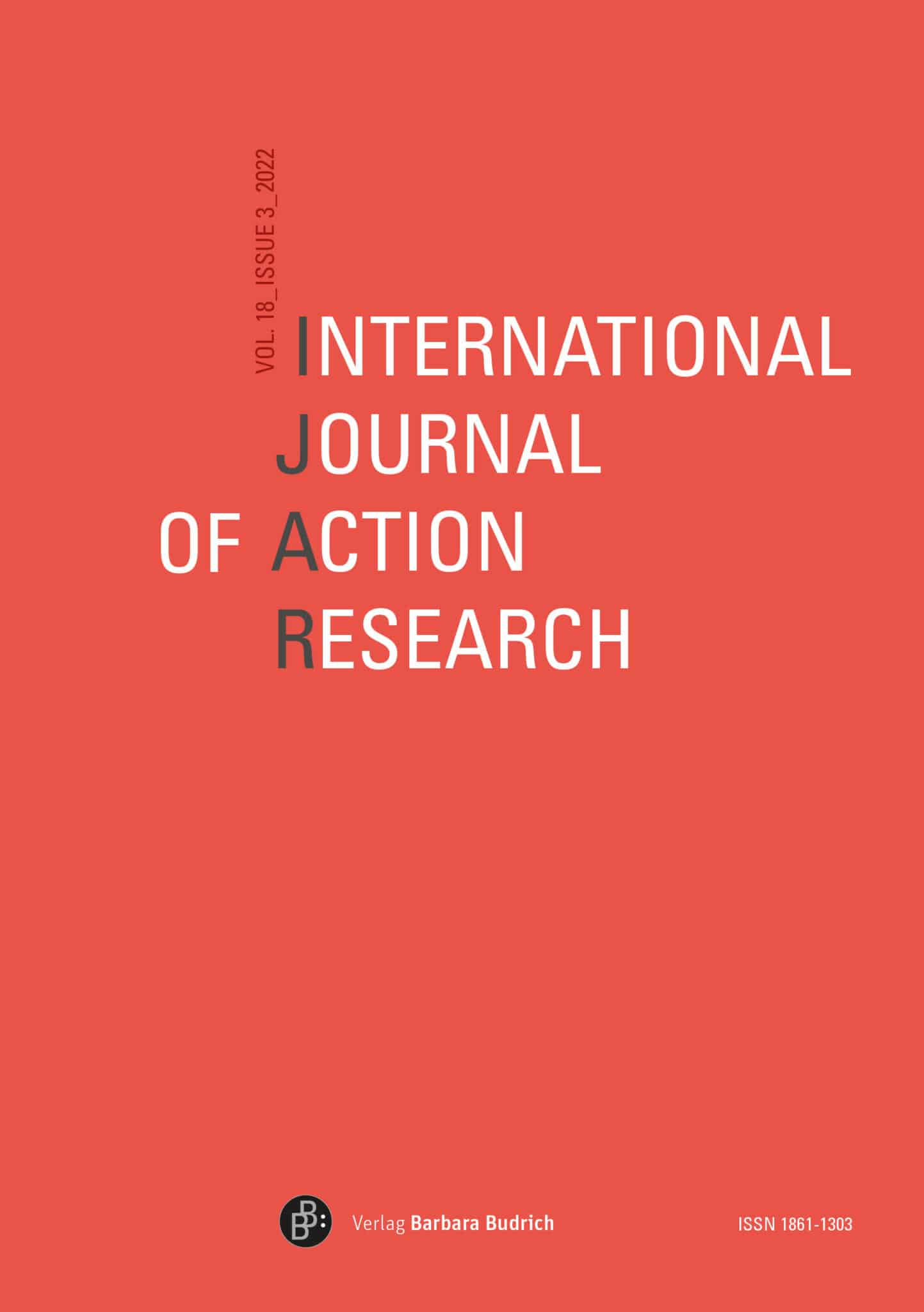

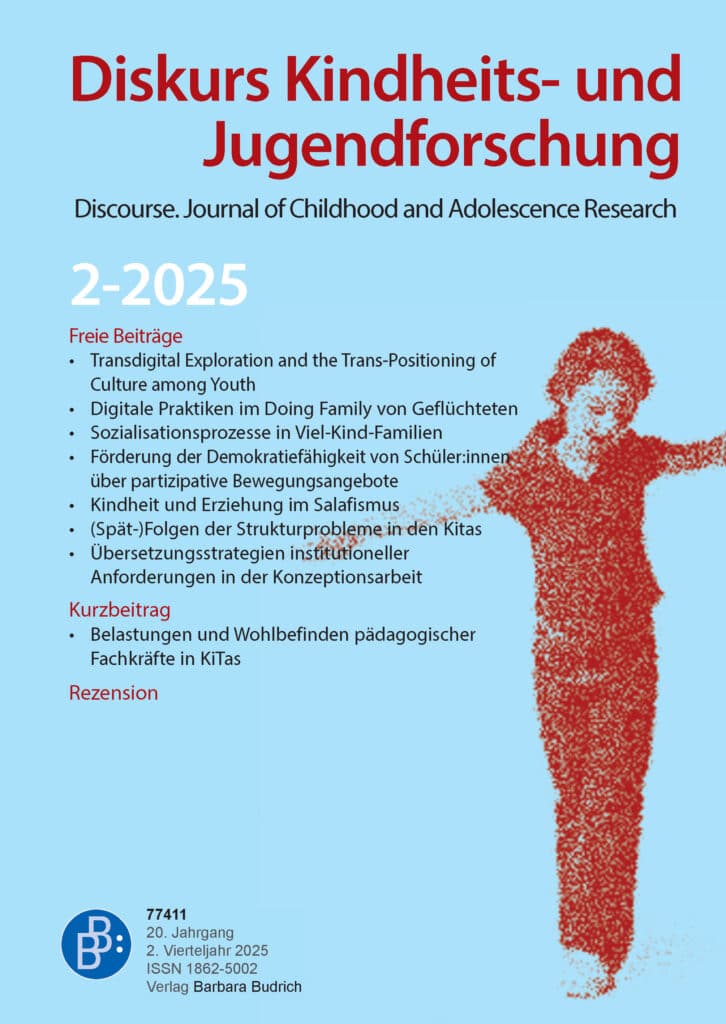
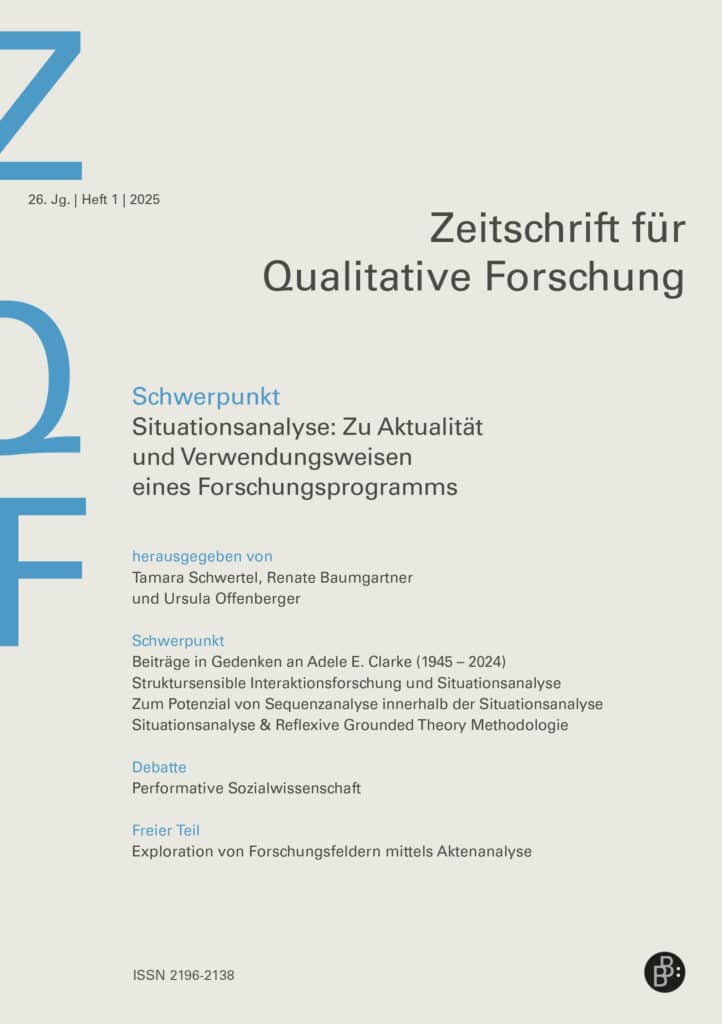
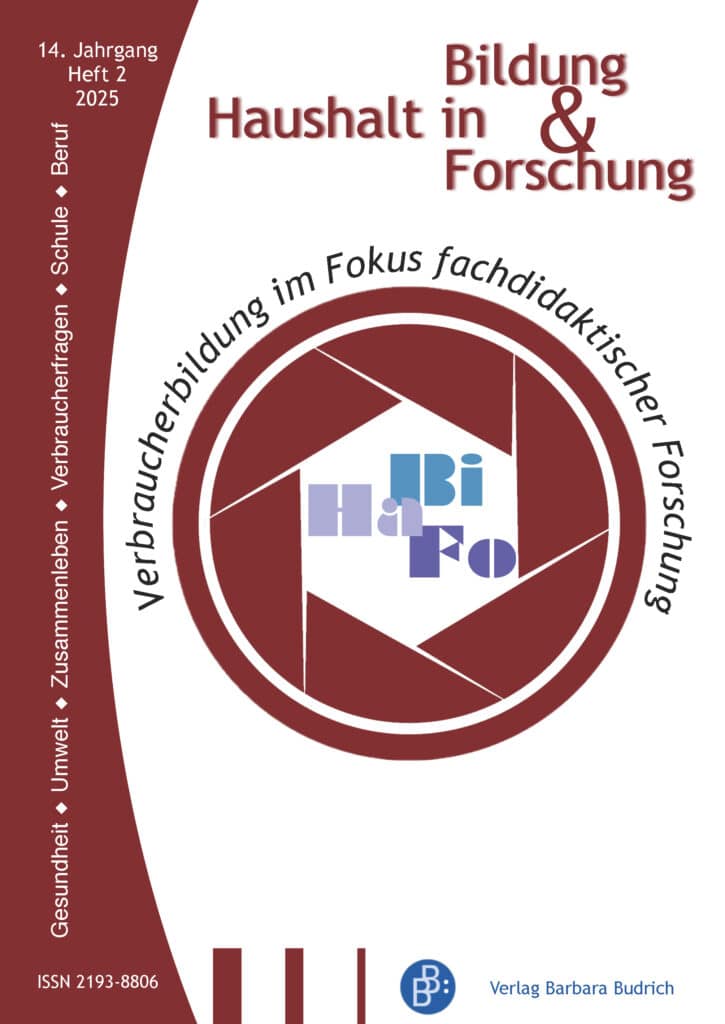
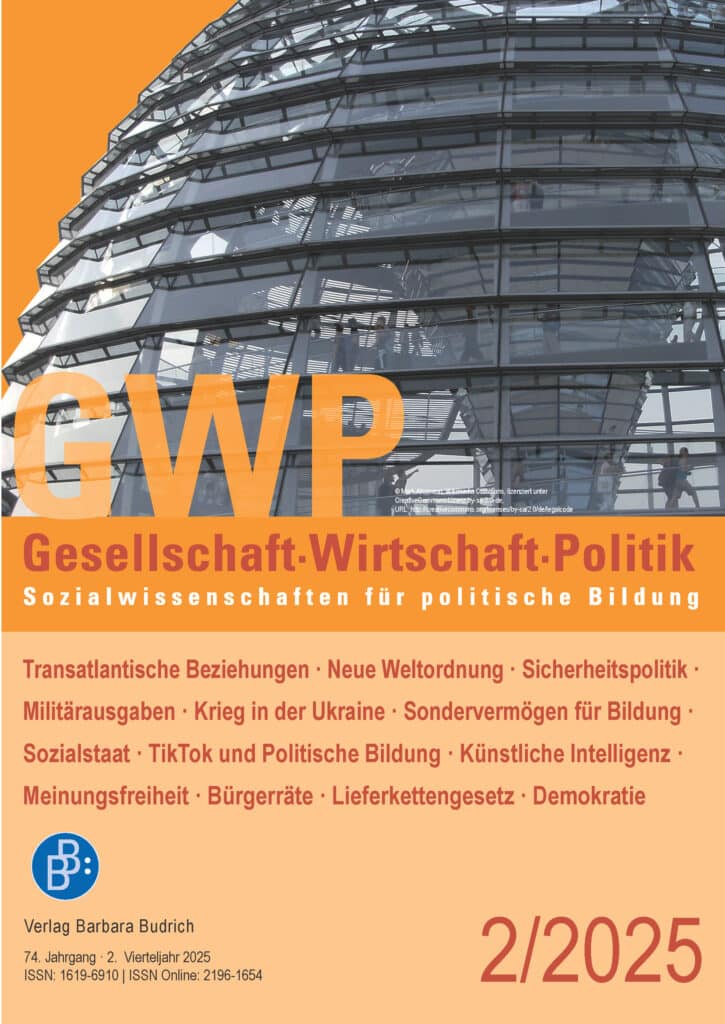
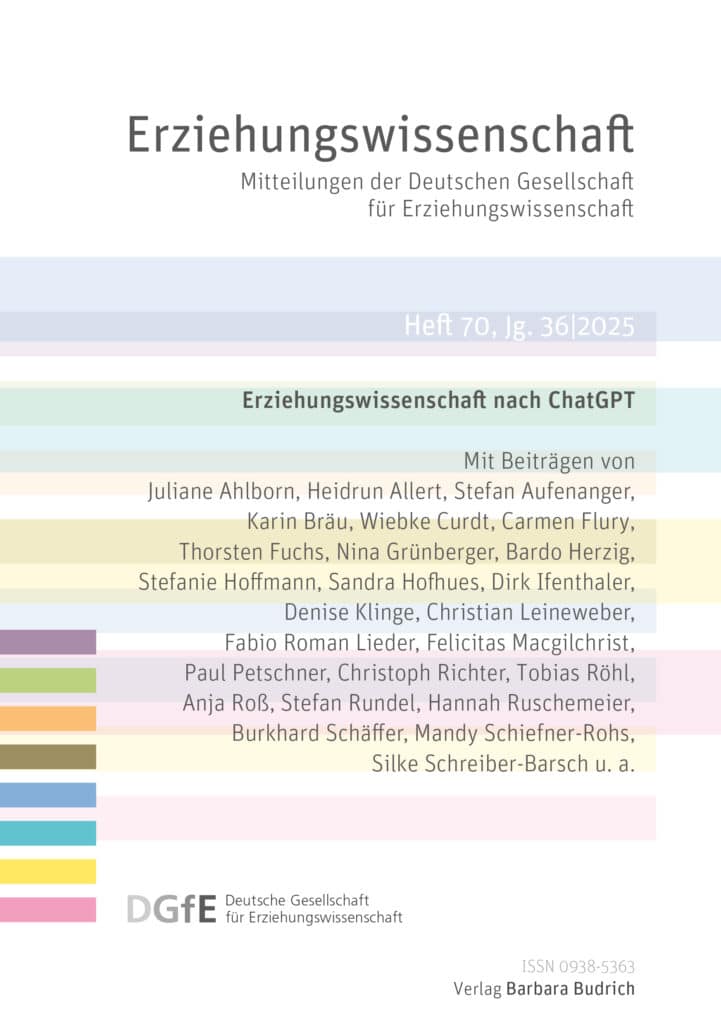

Bewertungen
Es gibt noch keine Bewertungen.